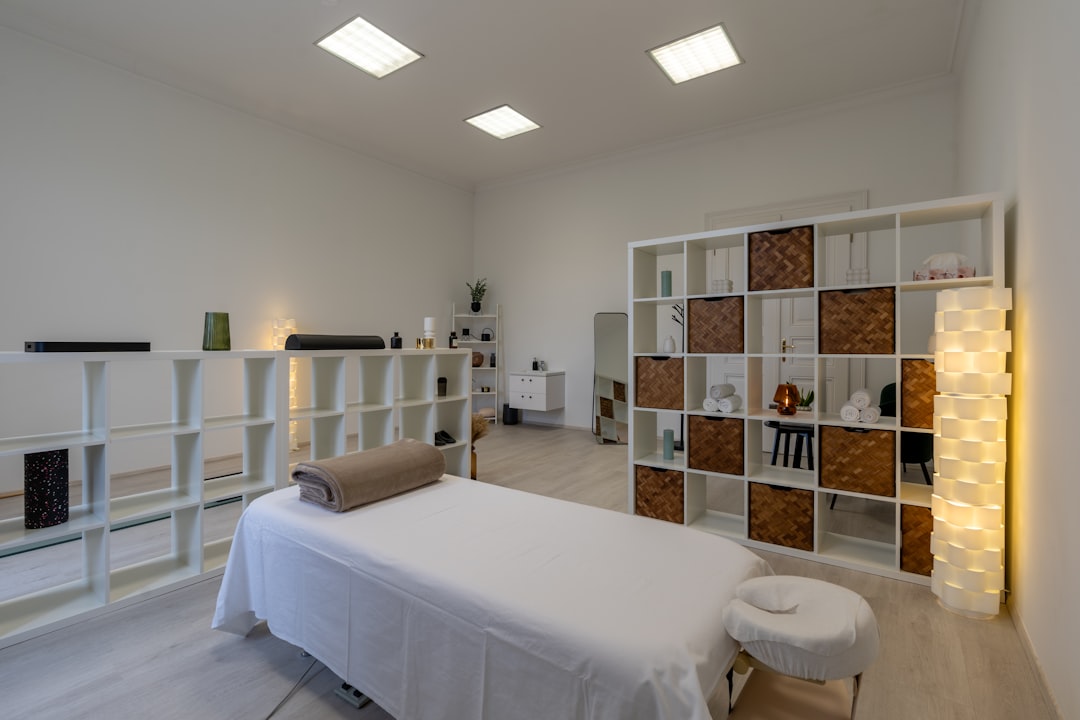In a digital-first world, having a strong online presence is essential for massage therapists seeking to attract new clients and maintain ongoing relationships with existing ones. Whether you’re a solo practitioner or running a larger therapeutic practice, your website is your digital storefront—often the first impression potential clients will have of your services. Selecting the right website builder is crucial to creating a site that reflects your professionalism, communicates your brand, and makes booking easy for clients.
TL;DR
Massage therapists need a reliable and user-friendly website to attract and retain clients. Top website builders like Wix, Squarespace, and Weebly offer tailored features such as booking systems, mobile optimization, and elegant design templates suitable for wellness professionals. It’s important to choose one that suits your level of tech comfort, design preferences, and business needs. Simplicity, SEO tools, and integration capabilities are key factors to consider.
Why a Good Website Is Essential for Massage Therapists
Having a well-designed website offers more than just a digital presence—it enhances credibility, improves marketing reach, and streamlines client scheduling. Here’s why:
- First Impressions Matter: An outdated or amateurish website can discourage potential clients from making an appointment.
- Automatic Booking: Modern website builders allow you to integrate scheduling tools, making it easier for clients to find and book time with you.
- Local SEO Advantage: A well-structured site makes it easier for your business to appear in search results when people look for nearby massage therapy services.
- Brand Trust: Prospective clients often Google your business before making a decision. A clean, informative site gives them assurance of your professionalism and legitimacy.
What to Look for in a Website Builder for Massage Therapists
Before diving into the best platforms, it’s important to understand the key features that matter most for massage therapy websites:
- Ease of Use: Choose a builder that doesn’t require coding skills yet offers flexibility and customization.
- Integrated Booking Tools: Being able to accept and manage appointments online is non-negotiable in this industry.
- Mobile Optimization: Many people search and book services from their phones, so responsive design is essential.
- SEO Tools: The better your SEO, the more local clients you can attract organically via Google.
- Customer Support: Having reliable support helps if technical issues arise during critical times.
Top Website Builders for Massage Therapists
1. Wix
Wix is one of the top choices for massage therapists thanks to its blend of ease-of-use and advanced customization. It features an intuitive drag-and-drop interface, hundreds of professionally-designed templates, and integrated scheduling tools like Wix Bookings.
- Pros:
- Excellent drag-and-drop editor
- Integrated booking and payment options
- Attractive industry-specific templates
- Robust app marketplace
- Cons:
- Can feel overwhelming if you want full customization
- Loading speeds can be slower with heavy media content

Best for: Therapists who want full design control and integrated scheduling without needing advanced technical skills.
2. Squarespace
Squarespace is known for its stunning aesthetics and sleek user experience, making it ideal for massage therapists focusing on branding and design. It offers elegant templates tailored to wellness professionals and integrates appointment scheduling through its Acuity Scheduling system (now part of Squarespace).
- Pros:
- Beautiful templates optimized for wellness brands
- Secure and reliable hosting with SSL certificates
- Built-in analytics and marketing integrations
- Mobile-responsive design
- Cons:
- Less flexibility than Wix for specific design tweaks
- Learning curve with some advanced features
Best for: Professionals who value design and aesthetics and want a polished, luxurious online brand.
3. Weebly (by Square)
Weebly is a user-friendly alternative particularly suited for those who prefer simplicity and solid booking features. Owned by Square, it allows seamless payment integration, making it ideal for businesses already accepting Square payments.
- Pros:
- Simplistic drag-and-drop interface
- Affordable pricing options
- Square integration for payments and appointments
- Good uptime and fast website performance
- Cons:
- Limited in design customization
- Blog and SEO functionality are basic

Best for: Beginners or small therapy businesses prioritizing speed, simplicity, and affordability over design complexity.
4. WordPress.com
WordPress.com bridges the gap between functionality and customization. For those willing to explore its more technical edges, WordPress.com offers powerful blogging and SEO tools—ideal for therapists who want to share wellness tips or maintain a blog.
- Pros:
- Strong SEO capabilities
- Vast amount of plugins (with premium plans)
- Endless design flexibility with themes
- Scales well as your practice grows
- Cons:
- May require more technical knowledge
- Appointment scheduling not as smoothly integrated as other platforms
Best for: Content-driven therapists who want to educate clients through blogs or articles, and don’t mind a steeper learning curve.
5. GoDaddy Website Builder
GoDaddy has improved its website builder significantly in recent years, and it’s particularly well-suited for professionals seeking quick setup, strong customer service, and appointment tools. With its native marketing suite, GoDaddy helps you stay connected with prospective and current clients via email campaigns and integrations.
- Pros:
- Fast setup and very easy design tools
- Automated blogging and SEO features
- Built-in appointment scheduling
- 24/7 customer support
- Cons:
- Templates are somewhat generic
- Fewer third-party integrations compared to Wix or WordPress

Best for: Time-strapped professionals or newcomers looking for an all-in-one platform that’s easy to manage.
Final Thoughts and Recommendations
Choosing the best website builder ultimately depends on your practice’s size, goals, and individual preferences. Here’s a brief summary to help guide your decision:
- Wix: Optimal for creative control and full integration options.
- Squarespace: Best for beautifully branded websites and client retention driven by stunning design.
- Weebly: Great for small practices or those new to web design who need simplicity.
- WordPress.com: Best suited for growing businesses and educational content creators.
- GoDaddy: Ideal for fast deployment with strong marketing features.
Regardless of the platform you choose, make sure your website is always clear, easy to navigate, and mobile-friendly. These three traits are non-negotiable for building trust and encouraging bookings. With the right website builder, you’ll have not just a beautiful site—but a powerful business tool that works for you around the clock.



